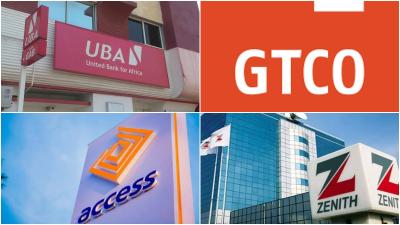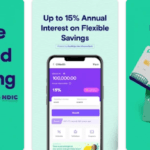![]() A Step-by-Step Guide to Applying for a COVID-19 Loan in Nigeria
A Step-by-Step Guide to Applying for a COVID-19 Loan in Nigeria
Here's an overview:
- Understanding COVID-19 Loans in Nigeria
- Step 1: Researching COVID-19 Loan Options
- Step 2: Gathering Required Documentation
- Step 3: Preparing a Strong Loan Application
- Step 4: Applying for the Loan
- Step 5: Managing Your COVID-19 Loan
Understanding COVID-19 Loans in Nigeria
I. Eligibility Criteria:
- Before applying for a COVID-19 loan in Nigeria, I should ensure that I meet the eligibility criteria set by the government or financial institution offering the loan. These criteria may include factors such as business size, industry, operational history, and financial health.
II. Loan Amount:
- When considering applying for a COVID-19 loan, I should determine the amount of funding required for my business to navigate through the challenges posed by the pandemic. This will help me choose the most suitable loan option available.
III. Interest Rates and Repayment Terms:
- It is crucial to carefully review the interest rates and repayment terms associated with COVID-19 loans in Nigeria. Understanding these terms will help me assess the affordability of the loan and ensure that I can comfortably meet the repayment obligations.
IV. Required Documentation:
- To apply for a COVID-19 loan, I will need to provide certain documentation, such as business registration documents, financial statements, tax identification numbers, and any other relevant paperwork. Ensuring I have all the necessary documentation ready will streamline the application process.
V. Application Process:
- The application process for COVID-19 loans may vary depending on the financial institution or government agency offering the loan. It is essential to follow the guidelines provided carefully and accurately fill out the application form to avoid delays or rejection.
VI. Monitoring and Reporting Requirements:
- After obtaining a COVID-19 loan, I should be prepared to adhere to monitoring and reporting requirements set by the lender. This may involve providing regular updates on how the loan funds are being utilized and their impact on my business.
VII. Seeking Professional Assistance:
- If I find the process of applying for a COVID-19 loan in Nigeria overwhelming or confusing, I can seek assistance from financial advisors, business consultants, or government support services to guide me through the application process and ensure compliance with all regulations.
I. Managing Repayments:
- Once I secure a COVID-19 loan, it is important to diligently manage repayments to maintain a positive credit history and avoid defaulting on the loan. Creating a repayment plan and budgeting accordingly will help me stay on track with repayments and prevent financial strain.
By understanding the key factors involved in COVID-19 loans in Nigeria, I can navigate the application process with confidence and secure the necessary funding to support my business during these challenging times.
Step 1: Researching COVID-19 Loan Options
When I start researching COVID-19 loan options in Nigeria, I need to consider various factors to make an informed decision. Here are the steps I follow:
- Identify Available Loan Programs: First, I research the various COVID-19 loan programs available in Nigeria. This can include government-backed loans, private sector loans, and NGOs offering financial assistance.
- Understand Loan Terms: Next, I carefully analyze the terms and conditions of each loan program. I look at aspects such as interest rates, repayment periods, and any collateral requirements.
- Compare Lenders: I compare different lenders offering COVID-19 loans to find the one that best suits my needs. This involves looking at the reputation of the lender, customer reviews, and the overall application process.
- Check Eligibility Requirements: It is crucial to ensure that I meet the eligibility requirements for the loans I am considering. This can include factors like business size, industry, revenue, and employment status.
- Seek Professional Advice: If needed, I consult with financial advisors or professionals to get a better understanding of the loan options available and to receive guidance on the best course of action.
- Research Support Services: In addition to loans, I also research support services or resources available for borrowers. This can include financial literacy programs, business counseling, or mentorship opportunities.
By thoroughly researching COVID-19 loan options, I can make a well-informed decision that aligns with my financial goals and business needs.
Step 2: Gathering Required Documentation
I will need to gather the necessary documents before applying for a COVID-19 loan in Nigeria. Here are the key documents I should prepare:
- Identification Documents: Ensure I have a valid form of identification, such as a national ID card, international passport, driver's license, or permanent voter's card.
- Business Registration Documents: If I am applying for a business loan, I will need to provide documents that prove the legal registration of my business. This may include the Certificate of Incorporation, Form CAC 2A, and Memorandum and Articles of Association.
- Bank Statements: Prepare my bank statements for at least the last six months to demonstrate the financial history of my business or personal account.
- Tax Identification Number (TIN): Have my TIN ready, as it is a crucial requirement for loan applications in Nigeria.
- Proof of Address: Provide a utility bill or any official document that shows my current residential or business address.
- Financial Documents: Prepare my financial statements, including income statements, balance sheets, and cash flow statements, to give lenders insight into the financial health of my business.
- Loan Application Form: Obtain and fill out the loan application form from the chosen financial institution accurately.
- Other Supporting Documents: The application package should also include any other pertinent documents that the lending institution requests.
Before submitting my loan application, I must ensure all the required documentation is complete and accurate to increase my chances of approval.
Step 3: Preparing a Strong Loan Application
I will now guide you through preparing a strong loan application to increase your chances of approval.
- Gather Necessary Documents: Be sure to gather all required documents, such as business registration documents, financial statements, and a detailed business plan. Having these ready will streamline the application process.
- Review Your Credit Score: Lenders often consider credit scores when reviewing loan applications. It's essential to review your credit score beforehand and take steps to improve it if necessary.
- Prepare a Detailed Business Plan: A comprehensive business plan outlines your business operations, goals, financial projections, and repayment plans. This document showcases your vision and can impress lenders.
- Calculate Loan Amount: Determine the precise amount you need to borrow. Be realistic in your calculations and ensure you can repay the loan comfortably.
- Highlight COVID-19 Impact: Explain how the pandemic has affected your business. Provide specific details on revenue loss, operational challenges, and any pivots or adaptations you've made due to COVID-19.
- Seek Professional Help: Consider consulting with a financial advisor or loan consultant to review your application. They can offer valuable insights and help you strengthen your loan proposal.
By following these steps and presenting a well-prepared loan application, you can significantly increase your chances of securing a COVID-19 loan in Nigeria. Remember, taking the time to prepare a strong application demonstrates your commitment and professionalism to lenders. Good luck with your loan application!
Step 4: Applying for the Loan
I will now guide you through the process of applying for a COVID-19 loan in Nigeria. Follow these steps carefully to increase your chances of a successful application:
- Prepare the required documents:
- Gather all necessary documentation, such as your business registration documents, identification, bank statements, and any other required paperwork.
- Visit the Designated Financial Institution:
- Go to the approved financial institution that is disbursing the COVID-19 loans. Make sure to confirm the exact location and operating hours beforehand.
- Meet with a Loan Officer:
- Once at the institution, request to speak with a loan officer, who will guide you through the application process. Be prepared to provide all necessary documents and information.
- Complete the loan application.
- Fill out the loan application form accurately and truthfully. Ensure all details provided are correct to avoid delays or rejection.
- Submit Your Application:
- After completing the application form, submit it along with all required documents to the loan officer. Double-check to ensure nothing is missing.
- Wait for approval.
- Once your application is submitted, patiently wait for the financial institution to review and process it. This may take some time, so be prepared for a waiting period.
- Receive Notification:
- The financial institution will let you know the status of your loan application. If approved, they will provide you with further instructions on the disbursement of funds.
By following these steps diligently and ensuring all required documents are in order, you increase your chances of successfully applying for a COVID-19 loan in Nigeria. Good luck with your application!
Step 5: Managing Your COVID-19 Loan
Now that you've successfully secured your COVID-19 loan, it's crucial to manage it wisely to ensure financial stability. Here are some essential tips to help you effectively manage your loan:
- Create a Repayment Plan: Begin by creating a repayment plan that aligns with your financial capabilities. Calculate how much you need to repay each month and ensure you stick to the schedule to avoid any penalties.
- Prioritize Loan Repayments: Make loan repayments a priority to prevent accumulating excessive interest or getting into debt. Allocate a specific portion of your income towards repaying the loan to stay on track.
- Track Your Expenses: Monitor your expenses closely to ensure you can meet your loan obligations. Cut down on unnecessary spending and prioritize essential expenses to free up more funds for loan repayments.
- Stay in Communication with the Lender: If you encounter any challenges in repaying the loan, don't hesitate to communicate with your lender. They may offer alternative repayment options or solutions to help you manage your loan effectively.
- Avoid Taking on Additional Debt: To prevent further financial strain, avoid taking on additional debt while repaying your COVID-19 loan. Focus on repaying the existing loan before considering any new financial commitments.
- Build an Emergency Fund: Consider setting aside a portion of your income in an emergency fund. This fund can act as a safety net in case of unexpected expenses, helping you avoid defaulting on your loan.
By following these strategies, I can effectively manage my COVID-19 loan and work towards financial stability without jeopardizing my long-term financial health.



